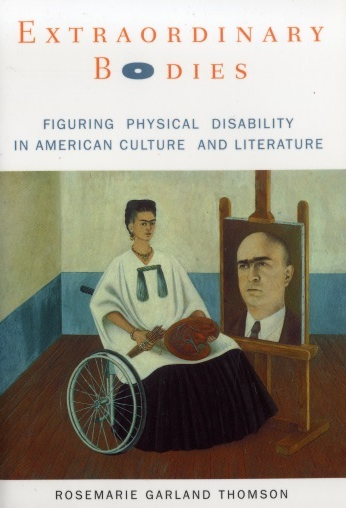Writing about Disability and Illness... in Pittsburgh and online!
On August 12, I will be leading a one-day workshop, with Creative Nonfiction on "Extraordinary Embodiment: writing disability and chronic illness" in Pittsburgh. Yay! If you (or yinz) are in the area, I hope you'll consider joining me.Illness and disability are universal human experiences. But too often written works about these experiences can be narrowly categorized by reader expectations, and these constraints can shut down our creative work and our inquiry. And they leave too many stories untold.In this day-long workshop, we will discuss the expected frameworks for “writing the body” and how we can write into and against those expectations. We’ll talk about what works of illness and disability we need to read and then write toward those needs. Attendees will have opportunities to respond to several writing prompts and share new work. We will also discuss the role of research and voice in writing these narratives. Participants will be provided with book lists of recommended creative nonfiction on writing disability and will have time to share their own recommendations.Here's the link to register, and the cost is $79 before July 24: https://www.creativenonfiction.org/products/extraordinary-embodiment
Teaching about writing chronic illness and disability isn't an easy "how to" for me, nor do I think there's one way to do it. Instead I am learning to watch and analyze my own writing to try to understand what I actually think about this topic. I think the ways of writing this broad human experience are completely open for discussion. What I'm interested in right now are the ways in which I initially focused on explaining my illness to non-afflicted people, and how in some ways that attempt to "bridge the gap" shut down my writing on the topic. Only when I freed myself from that "explaining" role did I feel free to describe the experience and write what I needed to read. I imagine that my own thinking on the topic will continue to evolve, but there's some connection for me between writing the world as I experience it (not as a human interest piece) and the idea of dignity in illness and the "normal" of extraordinary embodiment.
 The phrase "extraordinary embodiment" was first brought to my attention by the writer Sarah Einstein, and the phrase grew from the concept of "extraordinary bodies," as described in the title of Rosemary Garland Thomson's 1996 book from Columbia University Press that launched the field of disability studies in literature, Extraordinary Bodies: Figuring Physical Disability in American Culture and Literature.
The phrase "extraordinary embodiment" was first brought to my attention by the writer Sarah Einstein, and the phrase grew from the concept of "extraordinary bodies," as described in the title of Rosemary Garland Thomson's 1996 book from Columbia University Press that launched the field of disability studies in literature, Extraordinary Bodies: Figuring Physical Disability in American Culture and Literature.
And... if you can't make it to Pittsburgh but are interested in the kinds of things I'll be teaching, I have some resources for you!First..."Metaphoring Into Pain" is an hour-long video of a writing workshop with exercises on writing about chronic pain and other physical experiences, presented as part of the 2017 Survive and Thrive online summit on April 28, 2017 I read a short piece from Pain Woman Takes Your Keys and then participants have an opportunity to do writing exercises related to health and illness with a focus on finding metaphors for physical experience.URL to watch recording: http://bit.ly/2oU35mo
Second...Michael Noll put together a great exercise related to "Metaphoring" as an analysis of the essay "The Lava Lamp of Pain" (originally published on The Rumpus and now included in Pain Woman) on his blog Read to Write Stories.He writes, "When people (and you still hear this sometimes) say that writing can’t be taught, what they really mean is that raw imaginative power can’t be taught. Either your mind can come up with something as great as “lava lamp of pain” or it can’t (or it will come up with something in between can’t and great). But what can be taught is the creative process that creates the opportunity for an imagination to be as great as it can be. This is what Huber does again and again in this essay."He analyzes the progression of metaphors in the essay and then gives neat writing prompts.